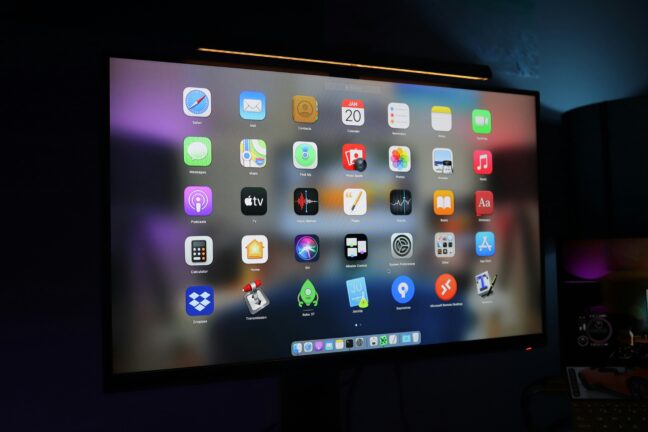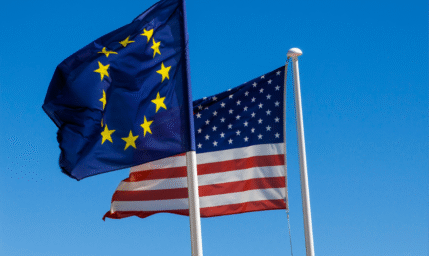Brussels is resisting Donald Trump’s threats of retaliation against countries that impose digital taxes or regulations. EU leaders insist their flagship tech rules are ’non-negotiable’, as Washington considers punitive measures such as higher tariffs and visa restrictions on officials enforcing the laws.
The confrontation escalated when the U.S. President Trump used his social media to threaten countries with digital taxes or online rules with “substantial additional tariffs“. Besides that, earlier reports from Reuters reveal that the US is weighing visa restrictions on EU and national officials responsible for enforcing the Digital Services Act (DSA).
Calling the Digital Services Act a censorship tool is completely wrong and unfounded. – Thomas Reigner, European Commission spokesperson
While Republicans argue the DSA censors Americans and penalises their tech firms, Brussels strongly disagrees. Thomas Reigner, Commission spokesperson, said calling the law a censorship tool is “completely wrong and unfounded”. On the same tone, spokesperson Paula Pinho added that regulating economic activities on EU territory is a sovereign right, consistent with democratic values.
Digital rules are ’non-negotiable’
Facing the pressure, Commission Vice-Presidents Henna Virkkunen and Teresa Ribera reaffirmed in a written reply to civil society inquiries that they won’t water down the EU’s digital laws. “The EU’s legislation and regulatory framework remain non-negotiable, and the Commission will continue to protect the EU’s regulatory autonomy”, they wrote. Adding that “European digital rules and decision making are not linked to trade negotiations”
The EU’s legislation and regulatory framework remain non-negotiable. – Commission Vice-Presidents Henna Virkkunen and Teresa Ribera
Ribera, speaking later to the Financial Times, went further and called on the EU to respond to Trump’s threats with political courage. She urged the bloc “to avoid the temptation of being subordinated to others’ interests” and warned against allowing coercive moves to weaken the DSA and the DMA (Digital Markets Act).
Time for Anti-Coercion Instrument?
The debate has also turned to the European Anti-Coercion Instrument. This mechanism allows the bloc to respond to economic pressure from third countries.
Green MEP Alexandra Geese (GER) accused the Commission of being too timid and called for partnerships with other blocs. “To avoid becoming a colony of the United States, Europe must establish strategic alliances with Canada, Brazil, India, Taiwan, South Korea, and other countries that share the same concerns regarding this form of blackmail,” she wrote.
Ms Geese also listed how the Commission could act on multiple fronts: “Activate the Anti-Coercion Instrument? Publish the results of investigations into X and TikTok? Investigate algorithms boosting disinformation? Support European digital companies as the U.S. does with its sovereign fund? There’s an endless list of things to do to keep Europe and the world free. Start doing it!’”.
You might be interested
Washington escalates the debate
Across the Atlantic, the pressure continues. The U.S. House Judiciary Committee, chaired by Republican Jim Jordan, is hosting a hearing on 3 September on ’European threats to American free speech and innovation’. Among the invited witnesses is former EU Commissioner Thierry Breton, who publicly declined to participate. British politician Nigel Farage is set to testify.
The chairman, Jim Jordan, is a vocal voice against European digital regulation. He has previously labelled the DSA ’a threat to free speech’ and recently published an online thread titled ’The EU Censorship Files’, claiming the law forces American platforms to censor political content worldwide.
The escalating debate comes just days after the EU and US issued a joint statement capping tariffs at 15%. The Commission described the agreement as a step toward stability and predictability, but Trump’s renewed criticism of digital regulation now casts doubt on those gains.











